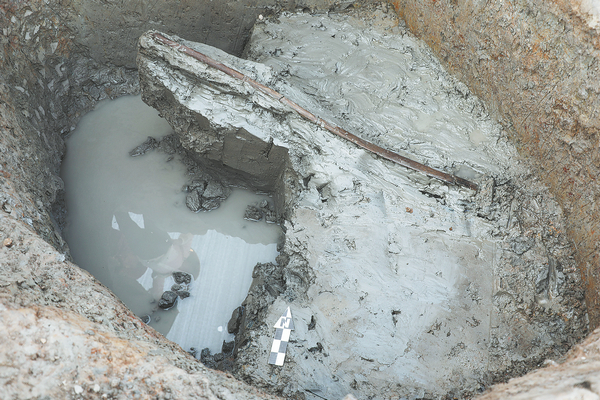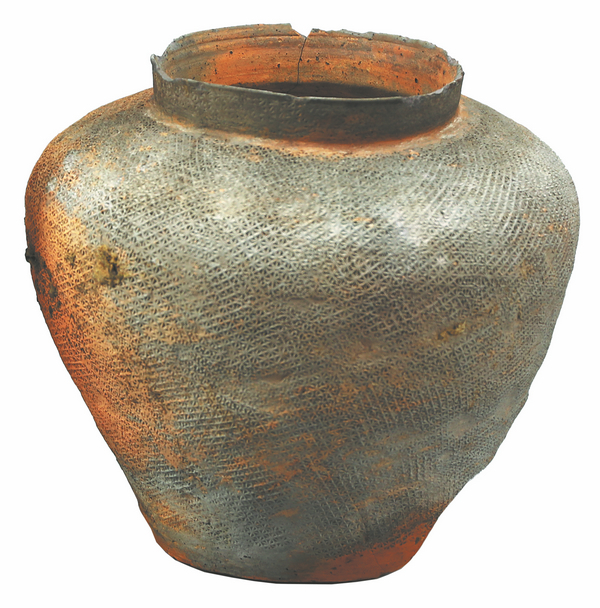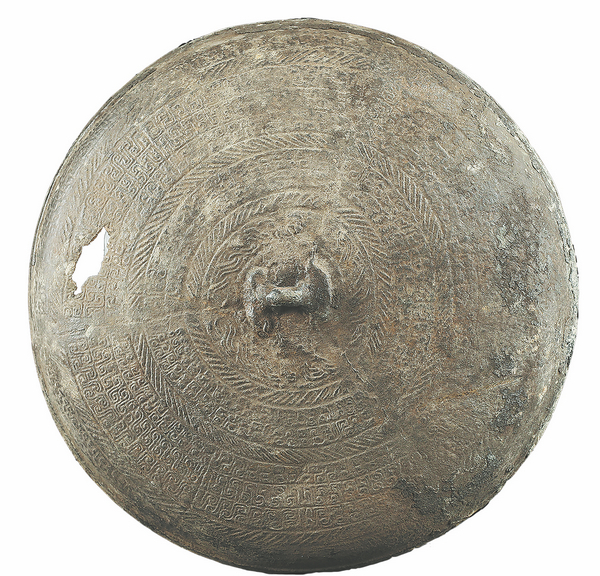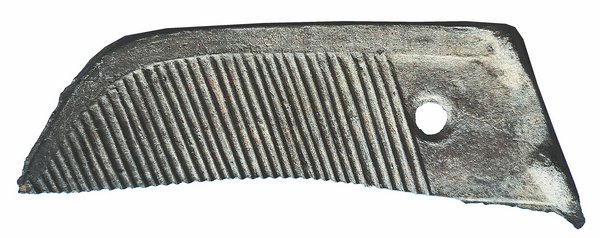

Evidence of various types of food came to light, including rice, peaches, plums, grapes, and remnants of cattle, pigs, horses and fish.
It was unexpected to find the remains of deep-sea fish, such as tuna, at this site, says Xu Xinmin, a researcher at the Zhejiang Provincial Institute of Cultural Relics and Archaeology.
Xu says he was also surprised by the discovery of a bronze dagger-axe with a character in bird-and-insect script on both sides. The word means yue.
It was found in the silt of an ancient river.
"Experts said that the bronze dagger-axe is about 2,000 years old. It was well-preserved without much damage. We can imagine how advanced the handicraft industry and cultural level of the Yue State was at that time," says Xu.
"The relic site of Nanshan is located at the central area of the Yue State. It is likely to have a close connection with its capital. The findings are a breakthrough," Xu says.
The excavation has given a unique perspective into life in the Yue State, according to Lin Liugen, a professor from the School of Art and Archaeology of Zhejiang University.

Lin explains that the key findings allow the public to learn how the Yue State created a unique culture, not just the stories of warcraft between the Wu and Yue States and the story of the King of Yue, Gou Jian, who, legend says, "slept on brushwood and tasted the bitter gall" before each meal to remind himself of the humiliation his country had suffered.
According to Luo Rupeng, deputy Party secretary of the Zhejiang Provincial Institute of Cultural Relics and Archaeology, the history of the Yue State will be gradually outlined from a settlement to a city and then to a country in the next five to 10 years through scientific archaeological excavations.
Since 2020, archaeologists have successively discovered many representative sites of the Spring and Autumn and Warring States periods, such as the relic sites of Tingshan, Nanshan, and Dahutou, enriching both the archaeological findings concerning the Yue State and the research of the history and culture of Shaoxing.
Fang Xiaoying in Hangzhou contributed to this story.
Contact the writer at mazhenhuan@chinadaily.com.cn

